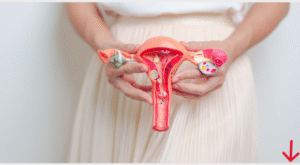3 Self-Centered Habits Husbands Must Quit to Protect Their Wives from Cervical Cancer

Cervical cancer remains one of the leading gynecological cancers around the globe. While many women know about risk factors such as HPV, genetics, or irregular screenings, far fewer realize that a husband’s daily choices can quietly raise the danger. Small, selfish habits men often dismiss as “normal” can, in fact, put their wives in harm’s way.
Below are three behaviors every man should stop immediately if he truly values his partner’s health.
1. Lighting Up: Smoking and Secondhand Exposure
Most people already understand how dangerous smoking is for the smoker, but fewer think about the ripple effect on family members. Husbands who smoke — whether indoors, in the car, or even outdoors near their wives — expose them to secondhand smoke that carries nearly the same toxic punch as active smoking.
For women, that means:
-
A weakened immune system that struggles to fight HPV, the primary cause of cervical cancer.
-
Increased risk of reproductive complications, including premature birth.
-
A higher likelihood of developing other serious illnesses, from breast cancer to cardiovascular disease.
Every cigarette inhaled by him becomes an invisible threat to her health.
2. Rejecting Protection in the Bedroom
Condoms aren’t just about preventing pregnancy — they’re a shield against infections like HPV, the biggest risk factor for cervical cancer. Used properly, they’re up to 98% effective at blocking transmission.
Yet many men refuse to use them, often prioritizing “comfort” over their partner’s safety. This puts women at unnecessary risk of STIs that directly damage cervical cells.
Some couples lean only on hormonal contraceptives. While effective at preventing pregnancy, long-term use has been linked to increased breast cancer risk. A major Danish study found women who used hormonal birth control for more than a decade had a 38% higher chance of developing breast cancer.
The smarter, safer approach: pair reliable contraception with STI protection — not one at the expense of the other.
3. Pressuring Intimacy During Menstruation
A woman’s body is more vulnerable during her period, as the cervix is slightly open and the uterine lining is shedding. Despite this, some men still push for sex during menstruation, ignoring both boundaries and health risks.
Doctors caution that intercourse at this time can:
-
Allow bacteria to enter more easily, raising the chance of pelvic infections.
-
Cause inflammation in the reproductive tract.
-
Increase long-term risks for cervical and uterine complications if infections go untreated.
Respecting her “no” during this time is not only considerate — it’s critical for her well-being.
Final Word
Preventing cervical cancer is not a woman’s battle alone. Husbands and partners have enormous influence on the health outcomes of the women they love. By quitting smoking, practicing safe intimacy, and respecting boundaries during menstruation, men can actively protect their wives instead of unknowingly putting them in danger.
Real love means caring enough to protect her health — not just her heart.
Disclaimer: This article is for informational purposes only and does not replace professional medical advice. Please consult a qualified healthcare provider for guidance about your health.